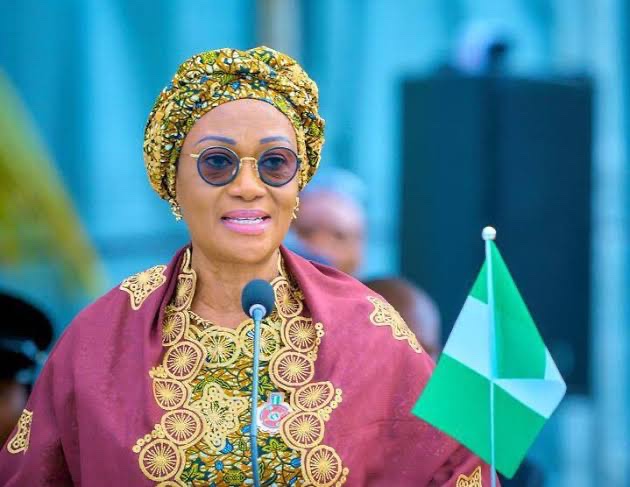Senator Oluremi Tinubu Donates N1bn to Cervical Cancer Fight, Urges Women to Seek Medical Help

|
Getting your Trinity Audio player ready...
|
In a bold step to bolster Nigeria’s battle against cervical cancer, the First Lady, Senator Oluremi Tinubu, has donated N1 billion to support the federal government’s cancer intervention initiatives. She made the donation through her pet project, the “Renewed Hope Initiative,” during a high-level meeting with the National Taskforce on Cervical Cancer Elimination at the State House, Abuja.
Oluremi hosted the taskforce delegation, led by the Minister of State for Health and Social Welfare, Dr. Iziaq Salako, in commemoration of the 2025 World Health Day, themed “Healthy Beginnings; Hopeful Future.”
Addressing the delegation, the First Lady urged Nigerians—particularly women—to speak openly about their health challenges and seek medical intervention early. “No one chooses to be ill, so there should be no shame in asking for help,” she said.
She expressed strong support for the task force’s strategy, which centres on testing, screening, vaccination, and treatment.
“We are on the right path. A healthy nation is a wealthy nation. Regardless of a country’s resources, if its people are unwell, then it remains poor,” Oluremi said.
She emphasised the importance of early detection and intervention in the fight against cancer, noting that proactive measures can save lives and reduce long-term healthcare burdens.
The N1 billion donation, she stated, will go directly into the National Cancer Fund to strengthen Nigeria’s response to cervical cancer, which remains a leading cause of cancer-related deaths among women.
Minister Salako commended the First Lady for championing the introduction of the Human Papillomavirus (HPV) vaccine into the national immunisation schedule. He said her support enabled the health ministry to vaccinate 12 million girls aged 9 to 13 in the first nine months of the campaign and expressed confidence that the ministry would reach another six million this year.
Also speaking at the event, Chairperson of the Taskforce and former Minister of Health, Professor Isaac Adewole, praised Oluremi’s “uncommon political will” and her pivotal role in the nationwide HPV vaccine rollout. He outlined the task force’s goal of vaccinating eight million girls annually, with plans to cover 12 states this year and another 12 in 2026, aiming for complete cervical cancer elimination by 2030.
Dr. Walter Mulombo, the World Health Organization’s Country Representative, appealed to the First Lady to continue lending her voice and presence to the campaign. “Every woman and child has a right to live,” he said.
The visit concluded with the presentation of WHO-branded souvenirs to the First Lady as a symbol of appreciation and encouragement for her efforts in improving the nation’s health landscape.






